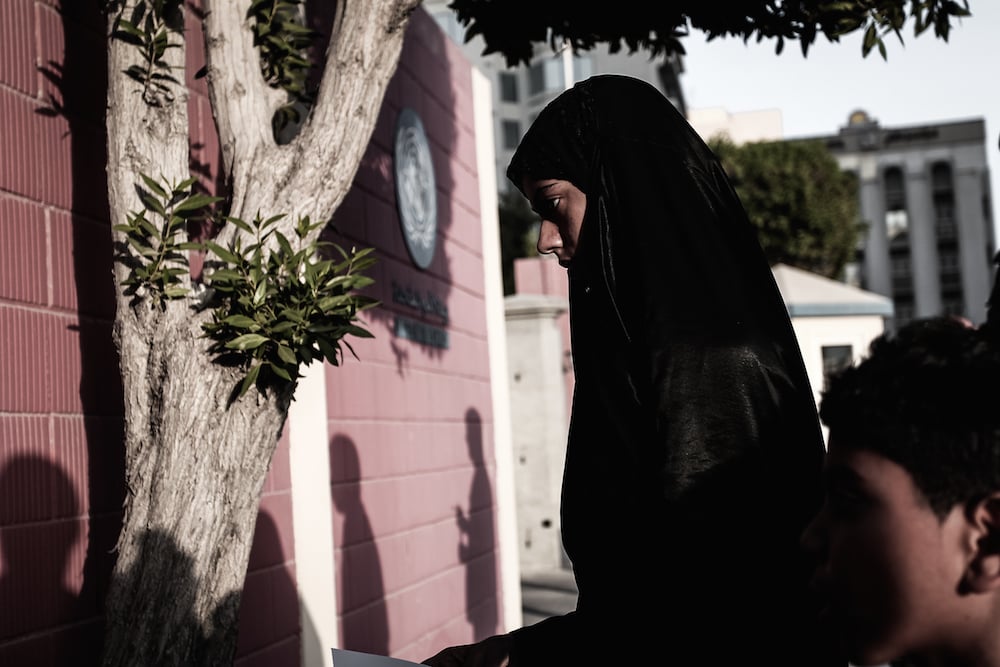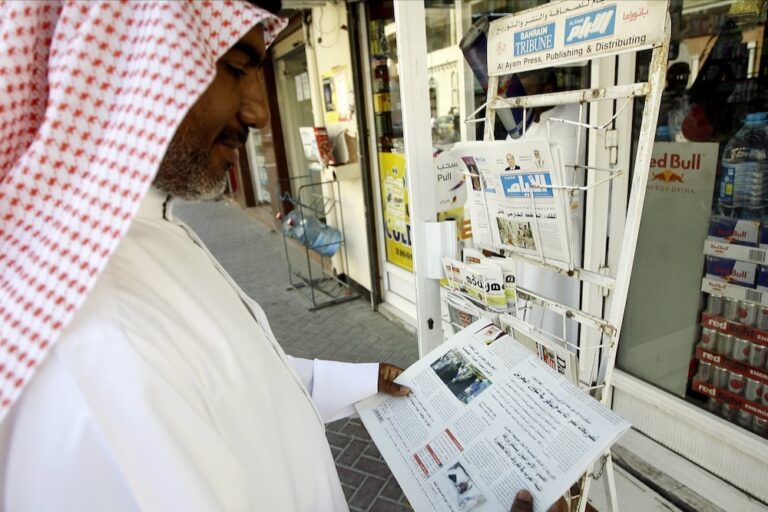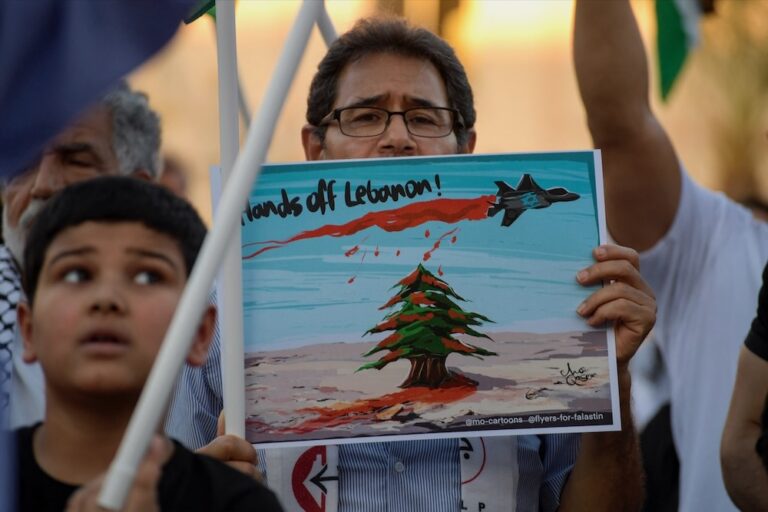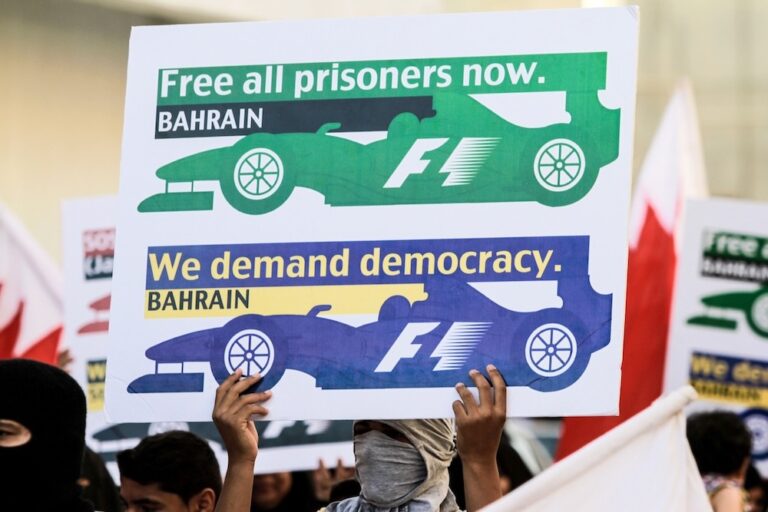After a highly criticised trial based on forced confessions, the country’s highest court upholds death sentences for tortured pro-democracy activists Mohamed Ramadhan and Husain Moosa.
This statement was originally published on adhrb.org on 13 July 2020.
Bahrain’s highest court, the Court of Cassation, has confirmed the reimposition of death sentences against torture victims Mohamed Ramadhan and Husain Moosa, who have now exhausted legal remedies and are at risk of imminent execution, pending ratification by Bahrain’s king, the Bahrain Institute for Rights and Democracy (BIRD) stated today.
Mohammed’s wife reported that she and Mohammed’s lawyer were barred entry from the courtroom.
The Public Prosecution announced the Court of Cassation’s decision on their Instagram page this morning.
Zainab Ebrahim, wife of Mohammed, told BIRD: “The terror of knowing that my husband can be executed by firing squad at any moment without proper notice is tearing me apart. I don’t know how I will be able to tell my three children that their father is never coming home.”
Zahra Moosa, sister of Husain, told BIRD: “Words cannot describe the devastation I feel knowing that my brother’s life can now so easily be taken away.”
Husain Abdulla, Executive Director of Americans for Democracy & Human Rights in Bahrain, commented: “If the U.S. Government had taken a strong line on Mohammed and Husain’s case these men would not be facing the death penalty today. Donald Trump’s open disdain for human rights has emboldened dictators all over the world.”
Sayed Ahmed Alwadaei, Director of Advocacy at Bahrain Institute for Rights and Democracy (BIRD), commented: “Today’s verdict is yet another dark stain in the struggle for human rights in Bahrain, demonstrating the regime’s iron grip over the country’s corrupt judiciary. This horrendous injustice could not have happened without the tacit acceptance of Bahrain’s western allies.”
According to international watchdogs and human rights lawyers, both men were convicted on the basis of false confessions extracted under torture in an unfair trial marred by due process violations.The Court of Cassation hearing followed an extensive international campaign for their release.
Mohammed and Husain were sentenced to death in 2014 after being convicted of terrorism offences. Both men were arrested without warrants and subjected to severe torture to extract false confessions, including sexual assault, beatings, sleep deprivation and other abuses. Mohammed and Husain were also prevented from meeting their lawyers until after they had been sentenced to death.
Hopes for their release were raised in 2018 when the Court of Cassation overturned Mohammed and Husain’s death sentences and ordered local oversight bodies to investigate whether the men had been tortured, following investigations by BIRD and Reprieve exposing UK Foreign Office complicity in attempts to conceal evidence of Mohammed and Husain’s torture. However, on 8 January 2020 their death sentences were reimposed by Bahrain’s High Court of Appeal.
Flawed Torture Investigations & Unfair Trial
The decision to uphold Mohamed and Husain’s sentences was based on an investigation into their torture allegations by Bahrain’s Special Investigations Unit (SIU), a human rights oversight body which continues to receive funding and training from the UK government.
The SIU and other Bahraini oversight bodies have been condemned by the UN Committee Against Torture as “not effective” and “not independent” and their investigation of Mohamed and Husain’s case was deemed “seriously flawed” by independent experts at the International Rehabilitation Council for Torture Victims (IRCT).
Furthermore, an amicus curiae brief submitted to the Court of Cassation on by Pete Wetherby QC on behalf of the Bar Human Rights Committee of England and Wales (BHRC) accused Bahrain’s courts of repeating “the erroneous reasoning of the earlier courts with respect to the issues of medical evidence and forced confessions” and concluded that upholding “the convictions in these cases would be wholly inconsistent with Bahrain’s international obligations.”
At present, there are 26 individuals on death row in Bahrain, of whom 12 are political prisoners at risk of imminent execution.
Criticism of UK Government
The British government has faced growing criticism for their long standing support for Bahrain, including extensive taxpayer-funded support for its police, judiciary and human rights oversight bodies, including the SIU.
Last week, British parliamentarian Sir Peter Bottomley asked an urgent question in the House of Commons urging the government to “to publicly raise” Mohammed and Husain’s cases with Bahrain. 25 other MPs participated in the ensuing debate, in which the UK government’s extensive support for Bahraini institutions accused of covering up Mohammed and Husain’s torture was heavily criticised.
Tom Tugendhat, speaking in the House of Commons, urged the Foreign Office “to write to His Majesty King Hamad and remind him that al-rahman al-rahim – the most compassionate, the most merciful – are the names that are given to God, by the Prophet, peace be upon him, and that perhaps this might be one of those moments where His Majesty could think hard about the decisions that are before him”.
Yesterday, a further 46 cross-party MPs signed an open letter calling on the UK Government to “urgently intervene” on Mohammed and Husain’s behalf and “ensure their torture allegations are independently investigated and they are granted a fair trial.”
International Criticism
Mohammed and Husain’s trial also attracted significant attention from international observers. Last Friday, Chair of the European Parliament’s Subcommittee on Human Rights Maria Arena and Chair of the European Parliament’s delegation for relations with the Arab Peninsula Hannah Neumann issued a join statement expressing “grave concern over the failures of the courts in Bahrain to exclude torture evidence” in their case.
In the US, Congressman James P. McGovern, Co-Chair of the bipartisan Tom Lantos Human Rights Commission, also condemned Mohammed and Husain’s trial, describing it as “a travesty that these two men are still imprisoned and face execution.”



